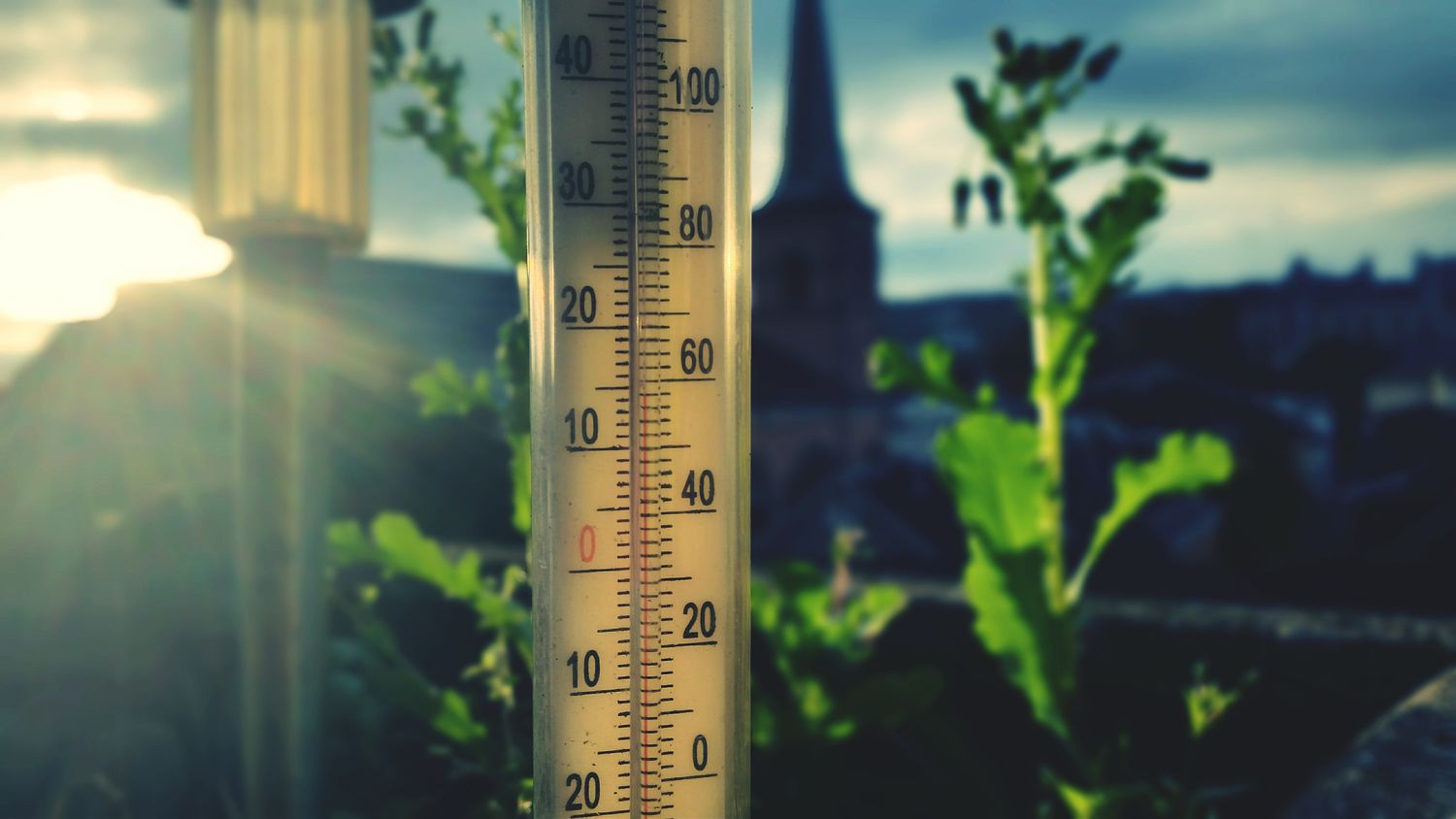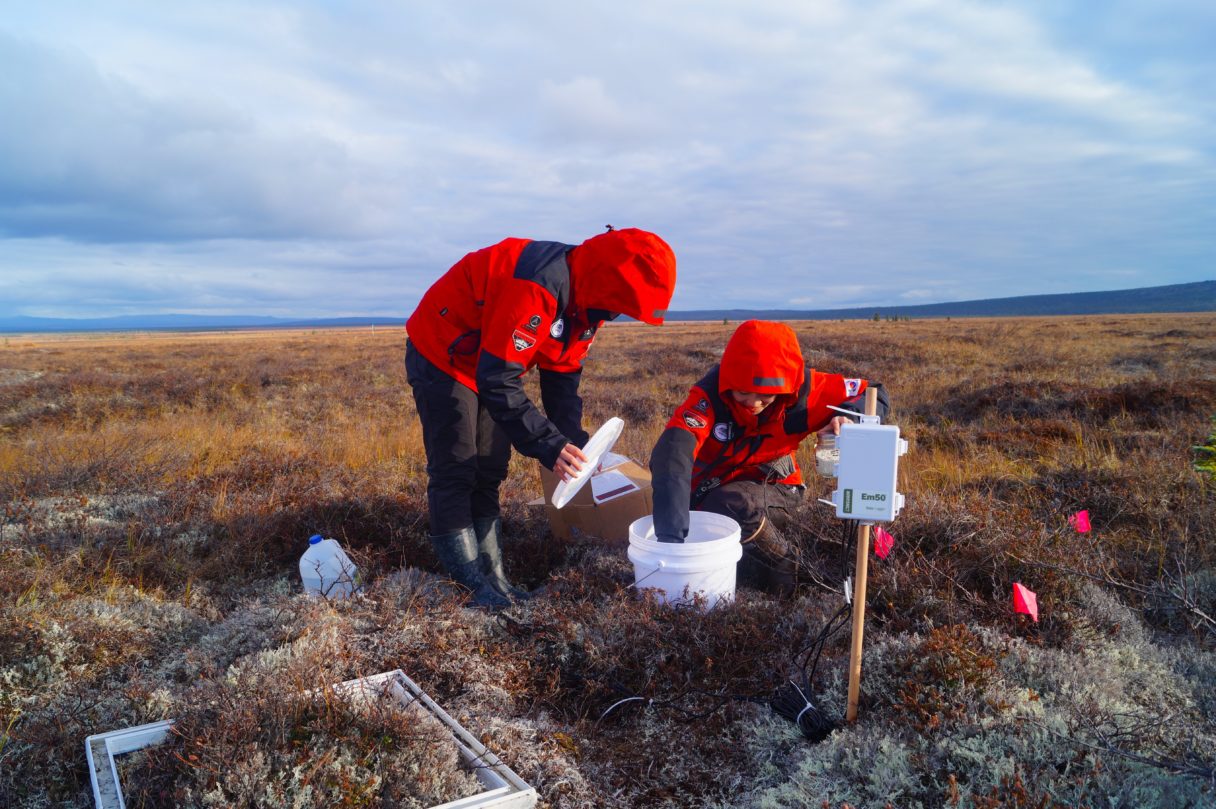Home>Weather and Climate>The Impact Of Rising Average Air Temperatures On Earth


Weather and Climate
The Impact Of Rising Average Air Temperatures On Earth
Published: March 4, 2024
Learn about the impact of rising average air temperatures on Earth and how it affects weather and climate. Explore the consequences and potential solutions.
(Many of the links in this article redirect to a specific reviewed product. Your purchase of these products through affiliate links helps to generate commission for Temperatures.com, at no extra cost. Learn more)
Table of Contents
Introduction
The Earth's climate is undergoing significant changes, with rising average air temperatures emerging as a prominent concern. The phenomenon of increasing global temperatures has garnered widespread attention due to its far-reaching implications for the planet and its inhabitants. As the average air temperatures continue to climb, it is crucial to comprehend the underlying causes, the multifaceted effects on various aspects of the environment, and the potential strategies to mitigate this trend.
The rise in average air temperatures is a pivotal aspect of climate change, a complex and pressing issue that demands urgent attention. This trend is primarily attributed to the escalating levels of greenhouse gases in the atmosphere, stemming from human activities such as industrial processes, deforestation, and the burning of fossil fuels. These activities have significantly intensified the greenhouse effect, leading to the retention of heat within the Earth's atmosphere and subsequent elevation of average air temperatures.
The repercussions of escalating average air temperatures are profound and pervasive, exerting a profound influence on weather patterns, ecosystems, and human health. The intricate interplay between rising temperatures and these fundamental aspects of life on Earth underscores the urgency of addressing this issue comprehensively and proactively.
Understanding the impact of rising average air temperatures on Earth is essential for fostering a sustainable and resilient future. By delving into the causes, effects, and potential mitigation strategies associated with this phenomenon, we can cultivate a deeper awareness of the intricate dynamics at play and pave the way for informed action. As we navigate the complexities of climate change, it is imperative to recognize the interconnectedness of all life on Earth and strive to safeguard the planet for current and future generations.
The escalating average air temperatures represent a pivotal juncture in the ongoing narrative of climate change, underscoring the imperative for concerted efforts to mitigate this trend and foster a harmonious coexistence with the natural world. Through a holistic understanding of this phenomenon, we can embark on a collective journey towards sustainable practices and policies that uphold the well-being of the planet and its inhabitants.
Causes of Rising Average Air Temperatures
The escalation of average air temperatures is intricately linked to the amplification of the greenhouse effect, a phenomenon driven by human activities that release copious amounts of greenhouse gases into the atmosphere. The primary contributors to this trend include:
-
Greenhouse Gas Emissions: Human activities, such as the combustion of fossil fuels for energy production, industrial processes, and transportation, release substantial volumes of carbon dioxide (CO2), methane (CH4), and nitrous oxide (N2O) into the atmosphere. These greenhouse gases trap heat, leading to an overall increase in atmospheric temperatures.
-
Deforestation: The widespread clearance of forests for agricultural expansion, urban development, and timber extraction diminishes the Earth's capacity to absorb CO2 through photosynthesis. Consequently, the balance between CO2 emissions and absorption is disrupted, contributing to the accumulation of greenhouse gases in the atmosphere.
-
Industrial Processes: Industrial activities, including manufacturing, mining, and construction, release a diverse array of greenhouse gases and aerosols into the atmosphere. These emissions not only elevate average air temperatures but also contribute to the degradation of air quality, further exacerbating environmental challenges.
-
Livestock Farming: The livestock sector, particularly cattle farming, is a significant source of methane emissions. Enteric fermentation in ruminant animals and manure management practices release substantial quantities of methane, a potent greenhouse gas that significantly contributes to the warming of the atmosphere.
-
Waste Management: Inadequate waste disposal and management practices, especially in landfills, result in the release of methane and CO2 from decomposing organic waste. These emissions further augment the concentration of greenhouse gases in the atmosphere, amplifying the greenhouse effect.
The cumulative impact of these human-induced activities has substantially intensified the greenhouse effect, leading to a discernible rise in average air temperatures. This trend underscores the imperative for concerted efforts to curtail greenhouse gas emissions and adopt sustainable practices that mitigate the impact of human activities on the Earth's climate system.
Effects of Rising Average Air Temperatures on Earth
The escalating average air temperatures exert a multifaceted impact on various facets of the Earth's environment, engendering a spectrum of effects that permeate ecosystems, weather patterns, and human health. These effects are emblematic of the far-reaching consequences of climate change and underscore the imperative for proactive measures to address this pressing issue.
Impact on Weather Patterns
The surge in average air temperatures precipitates a cascade of repercussions on weather patterns, manifesting in heightened frequency and intensity of extreme weather events. This includes more frequent and severe heatwaves, intensified tropical storms, and erratic precipitation patterns. The warming of the Earth's surface also catalyzes alterations in atmospheric circulation, potentially leading to disruptions in regional climate systems. These changes can engender profound implications for agricultural productivity, water resource management, and overall societal resilience in the face of climatic variability.
Impact on Ecosystems
Rising average air temperatures engender a transformative impact on ecosystems, precipitating shifts in species distributions, phenological changes, and alterations in ecological interactions. These changes can disrupt delicate ecological balances, leading to biodiversity loss, habitat degradation, and compromised ecosystem services. Furthermore, the warming of oceans and terrestrial environments can instigate coral bleaching, permafrost thawing, and the proliferation of invasive species, posing formidable challenges to the preservation of ecological integrity and the sustenance of vital ecosystem functions.
Read more: The Impact Of Sunspots On Earth’s Climate
Impact on Human Health
The amplification of average air temperatures poses significant risks to human health, accentuating the prevalence of heat-related illnesses, exacerbating air pollution, and amplifying the dissemination of vector-borne diseases. Prolonged heatwaves and elevated temperatures can precipitate heat stress, dehydration, and heatstroke, particularly among vulnerable populations. Moreover, the exacerbation of air pollution, stemming from intensified photochemical reactions in warmer conditions, can heighten the incidence of respiratory ailments and cardiovascular complications. Additionally, the expansion of the geographical range of disease vectors, such as mosquitoes carrying malaria and dengue fever, can augment the transmission of these diseases, posing formidable public health challenges.
The intricate interplay between rising average air temperatures and these diverse effects underscores the imperative for concerted efforts to mitigate climate change and foster adaptive strategies that bolster the resilience of ecosystems, societies, and public health systems. By comprehensively addressing the multifaceted impacts of escalating temperatures, we can cultivate a deeper understanding of the urgency of climate action and pave the way for sustainable and equitable solutions that safeguard the well-being of the planet and its inhabitants.
Impact on Weather Patterns
The impact of rising average air temperatures on weather patterns is profound and far-reaching, heralding a paradigm shift in the dynamics of atmospheric processes. As temperatures continue to ascend, the frequency and intensity of extreme weather events are on the rise, amplifying the occurrence of heatwaves, tropical storms, and erratic precipitation patterns. These manifestations of a changing climate pose significant challenges to societal resilience and necessitate a comprehensive understanding of their implications.
The escalation of average air temperatures catalyzes the exacerbation of heatwaves, characterized by prolonged periods of exceptionally high temperatures. These heatwaves not only pose direct risks to human health and well-being but also engender formidable challenges for agricultural productivity and energy demand. Moreover, the intensification of tropical storms, including hurricanes and typhoons, is emblematic of the perturbations in weather patterns induced by rising temperatures. The heightened sea surface temperatures, driven by the overall warming of the planet, provide the energy necessary for the amplification of these meteorological phenomena, culminating in devastating impacts on coastal communities and infrastructure.
Furthermore, the erratic precipitation patterns stemming from escalating temperatures can precipitate droughts, floods, and alterations in regional climate systems. These perturbations in precipitation regimes can have profound implications for water resource management, agricultural practices, and overall societal resilience. The amplification of these weather extremes underscores the imperative for adaptive strategies that bolster the capacity of communities to withstand and recover from the impacts of climatic variability.
The warming of the Earth's surface also instigates alterations in atmospheric circulation, potentially leading to disruptions in regional climate systems. These changes can engender profound implications for agricultural productivity, water resource management, and overall societal resilience in the face of climatic variability. The intricate interplay between rising average air temperatures and the multifaceted impacts on weather patterns underscores the urgency of proactive measures to address climate change comprehensively.
In essence, the impact of rising average air temperatures on weather patterns necessitates a paradigm shift in our approach to climate resilience and adaptation. By cultivating a deeper understanding of these dynamics and fostering adaptive strategies that enhance societal resilience, we can navigate the complexities of a changing climate and forge a path towards a sustainable and resilient future.
Impact on Ecosystems
The escalating average air temperatures exert a transformative influence on ecosystems, precipitating a spectrum of effects that reverberate across terrestrial, marine, and freshwater environments. These effects encompass shifts in species distributions, alterations in phenological events, and disruptions in ecological interactions, underscoring the far-reaching implications of rising temperatures on the intricate web of life on Earth.
One of the prominent manifestations of the impact on ecosystems is the phenomenon of range shifts, wherein species migrate to higher latitudes or elevations in response to changing temperature regimes. This phenomenon is particularly pronounced in alpine and polar ecosystems, where the warming of the environment compels species to seek suitable habitats conducive to their survival. Consequently, these range shifts can engender alterations in community compositions and ecological dynamics, potentially leading to the displacement of native species and the proliferation of invasive counterparts.
Moreover, the escalation of average air temperatures catalyzes phenological changes, influencing the timing of critical life cycle events such as flowering, migration, and reproduction. These alterations in phenology can disrupt the synchrony between interacting species, leading to mismatches in ecological relationships and compromising the resilience of ecosystems. For instance, the advancement of spring phenology can lead to incongruities between the emergence of plant foliage and the arrival of pollinators, potentially impacting the reproductive success of plant species and the dynamics of associated animal populations.
The warming of oceans and terrestrial environments also precipitates the degradation of critical habitats, such as coral reefs, mangrove forests, and polar ecosystems. The phenomenon of coral bleaching, driven by elevated sea surface temperatures, poses formidable challenges to the preservation of marine biodiversity and the sustenance of vital ecosystem services. Similarly, the thawing of permafrost in polar regions can instigate the release of stored carbon and methane, amplifying the feedback loops associated with climate change and further exacerbating the warming of the planet.
Furthermore, the proliferation of invasive species, facilitated by changing temperature regimes, can disrupt indigenous ecosystems, leading to biodiversity loss and compromised ecological resilience. These invasive counterparts can outcompete native species, alter nutrient cycling patterns, and perturb the delicate balance of ecological communities, underscoring the intricate interplay between rising temperatures and the dynamics of species interactions.
In essence, the impact of rising average air temperatures on ecosystems underscores the imperative for proactive measures to safeguard biodiversity, preserve critical habitats, and foster adaptive strategies that bolster the resilience of ecological systems. By comprehensively addressing the multifaceted implications of escalating temperatures on ecosystems, we can cultivate a deeper understanding of the urgency of conservation efforts and pave the way for sustainable solutions that uphold the integrity of the natural world.
Impact on Human Health
The impact of rising average air temperatures on human health is profound and multifaceted, heralding a spectrum of challenges that permeate public health systems and necessitate proactive measures to mitigate the risks posed by a changing climate. As temperatures continue to ascend, the prevalence of heat-related illnesses, exacerbated air pollution, and heightened dissemination of vector-borne diseases emerges as prominent concerns, underscoring the imperative for comprehensive strategies to safeguard human well-being.
Prolonged heatwaves and elevated temperatures precipitate a surge in heat-related illnesses, encompassing heat stress, dehydration, and heatstroke, particularly among vulnerable populations. The intensification of these extreme heat events poses formidable challenges to public health systems, necessitating the implementation of heat mitigation strategies, access to cooling centers, and heightened awareness campaigns to protect individuals from the adverse effects of excessive heat. Furthermore, the amplification of air pollution, stemming from intensified photochemical reactions in warmer conditions, exacerbates respiratory ailments and cardiovascular complications, imposing a substantial burden on public health infrastructure and necessitating concerted efforts to curtail air pollution sources and enhance air quality monitoring.
The expansion of the geographical range of disease vectors, such as mosquitoes carrying malaria and dengue fever, amplifies the transmission of these diseases, posing formidable public health challenges. The proliferation of these vector-borne diseases necessitates the implementation of robust vector control measures, community-based disease surveillance, and public health interventions aimed at mitigating the impacts of changing temperature regimes on disease transmission dynamics. Additionally, the exacerbation of waterborne diseases, such as cholera and leptospirosis, stemming from alterations in precipitation patterns and water quality, underscores the imperative for adaptive strategies that bolster the resilience of communities to the health risks associated with a changing climate.
In essence, the impact of rising average air temperatures on human health necessitates a paradigm shift in public health preparedness and response, underscoring the imperative for proactive measures to mitigate the risks posed by a changing climate. By comprehensively addressing the multifaceted implications of escalating temperatures on human health, we can cultivate a deeper understanding of the urgency of public health interventions and pave the way for sustainable and equitable solutions that safeguard the well-being of communities worldwide.
Mitigation Strategies for Rising Average Air Temperatures
Mitigating the escalating average air temperatures necessitates a comprehensive and concerted approach that encompasses a spectrum of strategies aimed at curbing greenhouse gas emissions, fostering sustainable practices, and enhancing climate resilience. These mitigation efforts are pivotal in addressing the root causes of rising temperatures and charting a path towards a sustainable and harmonious coexistence with the natural world.
-
Decarbonization and Renewable Energy: Transitioning towards a low-carbon economy is imperative in mitigating rising average air temperatures. This entails a concerted shift away from fossil fuel-based energy production towards renewable sources such as solar, wind, and hydroelectric power. By embracing decarbonization strategies and investing in renewable energy infrastructure, societies can significantly reduce their carbon footprint and mitigate the impact of greenhouse gas emissions on the Earth's climate system.
-
Afforestation and Reforestation: The preservation and restoration of forest ecosystems play a pivotal role in mitigating rising temperatures. Afforestation initiatives, aimed at establishing new forests in previously non-forested areas, and reforestation efforts, focused on restoring degraded forest landscapes, contribute to carbon sequestration and the enhancement of ecosystem resilience. These strategies not only mitigate greenhouse gas emissions but also foster biodiversity conservation and sustainable land management practices.
-
Sustainable Land Use and Agriculture: Implementing sustainable land use and agricultural practices is instrumental in mitigating rising temperatures. This encompasses the adoption of agroecological approaches, conservation tillage, and precision agriculture techniques that minimize greenhouse gas emissions from agricultural activities. Furthermore, sustainable land management practices, including the protection of wetlands and peatlands, contribute to carbon sequestration and the preservation of vital ecosystems.
-
Climate Resilient Infrastructure: Enhancing the resilience of infrastructure to withstand the impacts of rising temperatures is crucial in mitigating climate change. This involves the implementation of climate-resilient building designs, the integration of green infrastructure in urban planning, and the development of robust coastal protection measures. By bolstering the resilience of infrastructure, societies can mitigate the risks posed by extreme weather events and adapt to the challenges posed by a changing climate.
-
International Cooperation and Policy Frameworks: International collaboration and the formulation of robust policy frameworks are pivotal in mitigating rising average air temperatures. This encompasses the implementation of international agreements such as the Paris Agreement, aimed at curbing greenhouse gas emissions and fostering global climate action. Additionally, the integration of climate considerations into national policies, including carbon pricing mechanisms and emission reduction targets, is instrumental in mitigating the impact of rising temperatures on a global scale.
In essence, the mitigation of rising average air temperatures necessitates a multifaceted approach that encompasses diverse strategies aimed at curbing greenhouse gas emissions, fostering sustainable practices, and enhancing climate resilience. By embracing these mitigation efforts, societies can chart a path towards a sustainable and resilient future, mitigating the impact of rising temperatures on the planet and safeguarding the well-being of current and future generations.
Conclusion
The escalating average air temperatures represent a pivotal juncture in the ongoing narrative of climate change, underscoring the imperative for concerted efforts to mitigate this trend and foster a harmonious coexistence with the natural world. The multifaceted impacts of rising temperatures on weather patterns, ecosystems, and human health underscore the urgency of proactive measures to address this pressing issue comprehensively.
As the Earth's climate continues to undergo significant changes, it is imperative to recognize the interconnectedness of all life on the planet and strive to safeguard the environment for current and future generations. The complex interplay between human activities and the amplification of the greenhouse effect has led to the discernible rise in average air temperatures, necessitating a paradigm shift in our approach to climate resilience and adaptation.
Mitigating the escalating average air temperatures necessitates a comprehensive and concerted approach that encompasses a spectrum of strategies aimed at curbing greenhouse gas emissions, fostering sustainable practices, and enhancing climate resilience. From decarbonization and renewable energy to afforestation, sustainable land use, and climate-resilient infrastructure, these mitigation efforts are pivotal in addressing the root causes of rising temperatures and charting a path towards a sustainable and harmonious coexistence with the natural world.
The urgency of addressing the impact of rising average air temperatures on Earth cannot be overstated. It requires a collective commitment to embracing sustainable practices, advocating for robust policy frameworks, and fostering international cooperation to mitigate the impact of climate change on a global scale. By cultivating a deeper understanding of the multifaceted implications of escalating temperatures and embracing proactive measures, societies can navigate the complexities of a changing climate and forge a path towards a sustainable and resilient future.
In conclusion, the imperative for concerted action to mitigate the impact of rising average air temperatures on Earth is paramount. By comprehensively addressing the multifaceted impacts of escalating temperatures and embracing sustainable solutions, we can pave the way for a harmonious coexistence with the natural world, safeguarding the well-being of the planet and its inhabitants for generations to come.













